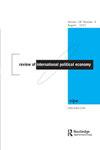关于非洲金融科技繁荣的矛盾:来自加纳的证据
IF 3.7
1区 经济学
Q1 ECONOMICS
引用次数: 0
摘要
摘要自从肯尼亚的移动货币服务——M-PESA,一个由国际发展机构、慈善家、学者、科技公司和政府组成的联盟——发挥了先锋作用以来,人们对金融科技在全球南方消除贫困、传播繁荣的力量持乐观态度。相比之下,越来越多的批判性IPE文献表明,乐观的说法是笼统的,具有误导性。根据最近关于数字金融化的理论和马克思主义对资本积累的概念,本文将以肯尼亚为中心的批评回应的重点转移到了非洲第二大移动货币市场加纳。根据加纳银行的定量数据和42次半结构化访谈的定性数据,文章提供了证据,表明加纳的移动货币繁荣是由以下因素支撑的:(1)数字小额贷款带来的客户负债;(2)高交易成本;(3)过度征税;(4)休眠账户的普遍存在。总的来说,这些发现证实了更广泛的批评文献,这些文献表明,非洲的金融科技金融包容性议程非但没有结束贫困和激发繁荣,反而为资本主义对非洲大陆工人阶级劳动力的持续和强化剥削开辟了新的领域。本文章由计算机程序翻译,如有差异,请以英文原文为准。
On the contradictions of Africa’s fintech boom: evidence from Ghana
Abstract Since the pioneering role of Kenya’s mobile money service – M-PESA, a consortium of international development agencies, philanthropists, academics, tech corporations and governments – have led an optimistic account of a poverty-eradicating, prosperity-spreading power of financial technology (fintech) in the global South. In contrast, a growing critical IPE literature has demonstrated that the optimistic accounts are broad-brush and misleading. Drawing from recent theorization on digital financialisation and Marxian conceptualization of capital accumulation, this article shifts the focus of the Kenya-centered critical response to Ghana, the second largest mobile money market in Africa. Relying on quantitative data from the Bank of Ghana, and qualitative data from 42 semi-structured interviews, the article provides evidence to show that the mobile money boom in Ghana is underpinned by (1) customer indebtedness from digital microloans, (2) high transaction costs, (3) excessive taxation, and (4) a prevalence of dormant accounts. Collectively, the findings confirm the wider critical literature suggesting that, far from ending poverty and inspiring prosperity, the fintech-financial-inclusion agenda in Africa is opening new frontiers for a sustained and intensified capitalist exploitation of working-class labor in the continent.
求助全文
通过发布文献求助,成功后即可免费获取论文全文。
去求助
来源期刊
CiteScore
9.20
自引率
9.30%
发文量
47
期刊介绍:
The Review of Political Economy is a peer-reviewed journal welcoming constructive and critical contributions in all areas of political economy, including the Austrian, Behavioral Economics, Feminist Economics, Institutionalist, Marxian, Post Keynesian, and Sraffian traditions. The Review publishes both theoretical and empirical research, and is also open to submissions in methodology, economic history and the history of economic thought that cast light on issues of contemporary relevance in political economy. Comments on articles published in the Review are encouraged.

 求助内容:
求助内容: 应助结果提醒方式:
应助结果提醒方式:


